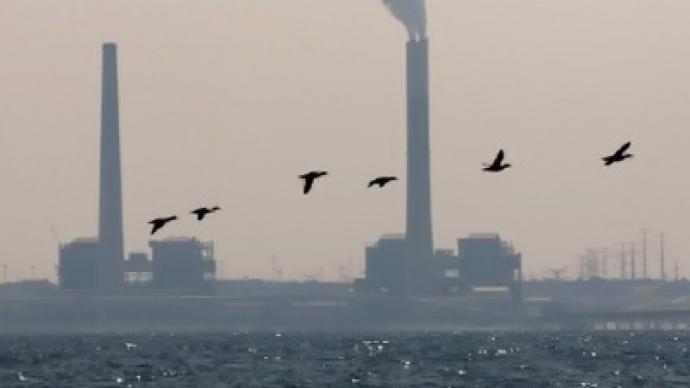Egypt’s interim government may shut off gas to Israel

Israel's long-established energy agreement could be about to go up in flames. The original deal for gas supplies from Egypt was set up by President Mubarak, but now a post-revolution Cairo is demanding that the terms be renegotiated.
Israel cannot be choosy in picking its energy resources. It has few of its own and most of its neighbors are not willing to share theirs.This is why sourcing secure energy is a hot issue in the Middle East.“Whenever we can get it and wherever we can get it, we should,” says Yozef Paritzky, a former Minister of National Infrastructure and Energy of Israel.For the last six years, Israelis have been getting a lot of its energy from Egypt. An underwater pipeline pumps natural gas from the Egyptian city of El Arish to the Israeli port of Ashkelon.But the revolution in Egypt, supported by the United States, is backfiring on Israel. The interim Cairo government saying it is not obliged to sell gas to Israel and is pushing to re-negotiate the agreement.Adiv Huri, a journalist and analyst who writes for several Egyptian papers from Israel, says the deal was always unpopular among Egyptians.“The Egyptian people started to know that all this business with the gas is so fake,” he said. “And it’s not giving any benefit to the Egyptian people.” The Egyptian public prosecutor has since ordered an investigation into the deal. Former President Hosni Mubarak and two of his sons are accused of having personally benefited from it.This does not surprise Yosef Paritzky, who set up the natural gas system in Israel. He was against the deal from the start, because it was signed between Israel and the East Mediterranean Gas company, which is registered offshore and has no assets in Egypt.“It was obvious that they achieved it in ways that were accustomed in the Arab world,” says Yozef Paritzky. “And it was also very obvious that one day if the president is not Mubarak, [if he] is not going to rule Egypt, then of course the whole contract is not worth the paper that it’s written on.”The East Mediterranean Gas company declined the request for an interview.Egypt's natural gas supplies about 40–50 per cent of the electricity power stations in Israel. It can be replaced by other fuels, but they are more expensive and produce more pollution.This is why Boaz Arad is blogging frenetically online. He writes about green issues and says the alternative options Israel has to the Egyptian supplies are not that attractive.“We get it in a high price and we will need to burn a lot of mazut, which is more pollutant than gas,” says Boaz Arad, a research fellow at Jerusalem Institute. “And the fact that we didn't develop the coal electric plants in time will cause us to pollute much more than we would have if we had them in place and working these days.”If no agreement with Cairo is reached, Tel Aviv is going to have to function without natural gas for a year. And so Israelis are stepping up efforts to develop gas wells now being discovered off shore.But these too remain a source of dispute between Israel and Lebanon, as Beirut claims the reserves as their own. Either way the gas issue is likely to keep heating up.













